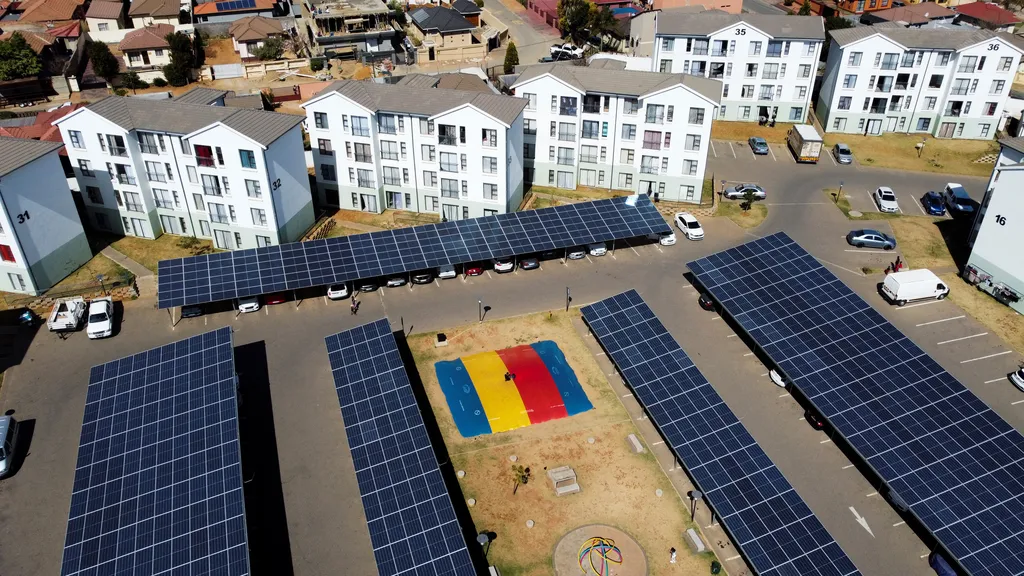In the sun-drenched landscapes of rural South Africa, a groundbreaking study is illuminating the path towards sustainable, off-grid healthcare facilities. Obu Samson Showers, a researcher from the Electrical Engineering Department at the University of Cape Town, has published a compelling study in the journal *Energies* (formerly known as Energies) that could reshape the energy landscape for remote medical centers. His work focuses on a solar photovoltaic (PV) system integrated with a hybrid energy storage system, designed specifically for a Category 3 rural healthcare facility in Elands Bay.
The study presents an optimal design and cost-benefit analysis of an off-grid solar PV system that combines a 16.1 kW solar PV array with a sophisticated hybrid energy storage system. This system includes a 10 kW lithium-ion battery, 23 supercapacitor strings, a 50 kW fuel cell, a 50 kW electrolyzer, a 20 kg hydrogen tank, and a 10.8 kW power converter. The daily energy consumption for the selected healthcare facility is 44.82 kWh, with a peak demand of 9.352 kW. The system achieves 100% reliability and zero CO2 emissions, a stark contrast to the 24,128 kg/year of CO2 emissions produced by traditional diesel generators.
“Our goal was to create a reliable, sustainable, and cost-effective energy solution for off-grid healthcare facilities,” said Showers. “The integration of solar PV with a hybrid energy storage system not only ensures uninterrupted power supply but also significantly reduces carbon emissions.”
Economically, the proposed system demonstrates strong competitiveness with a levelized cost of energy (LCOE) of ZAR24.35/kWh and a net present cost (NPC) of ZAR6.05 million. Sensitivity analysis suggests that the LCOE could further decrease by 20–40% by 2030 due to anticipated declines in component costs. This research highlights the potential for similar systems to be implemented in other off-grid rural healthcare facilities, not just in South Africa but globally.
The implications for the energy sector are profound. As the world increasingly turns towards renewable energy sources, the integration of solar PV with hybrid energy storage systems offers a viable solution for remote and off-grid applications. The study’s findings could accelerate the adoption of such systems, particularly in regions where reliable grid power is scarce.
“This research is a significant step towards achieving energy independence for rural healthcare facilities,” said Showers. “It showcases the potential of renewable energy technologies to provide sustainable and reliable power solutions.”
The study’s emphasis on cost-benefit analysis and sensitivity to future cost reductions underscores the commercial viability of these systems. As component costs continue to decline, the economic case for off-grid solar PV systems with hybrid energy storage becomes even more compelling. This could lead to widespread adoption, not only in healthcare but also in other sectors such as agriculture, education, and community services.
In conclusion, Showers’ research offers a blueprint for sustainable energy solutions that are both reliable and economically viable. As the world grapples with the challenges of climate change and energy access, this study provides a beacon of hope and a practical model for the future.

